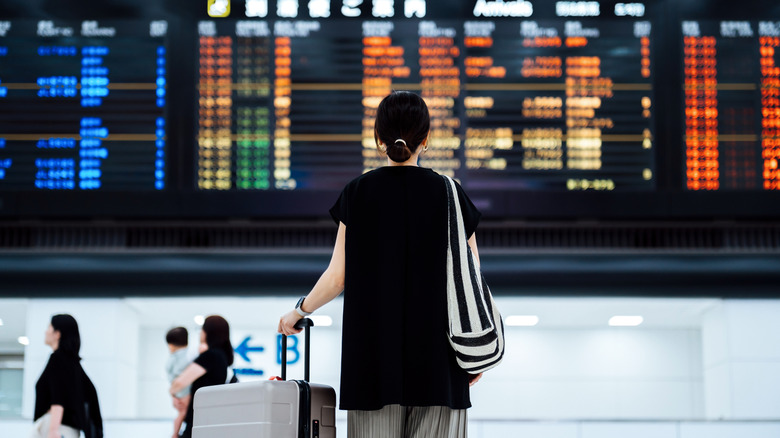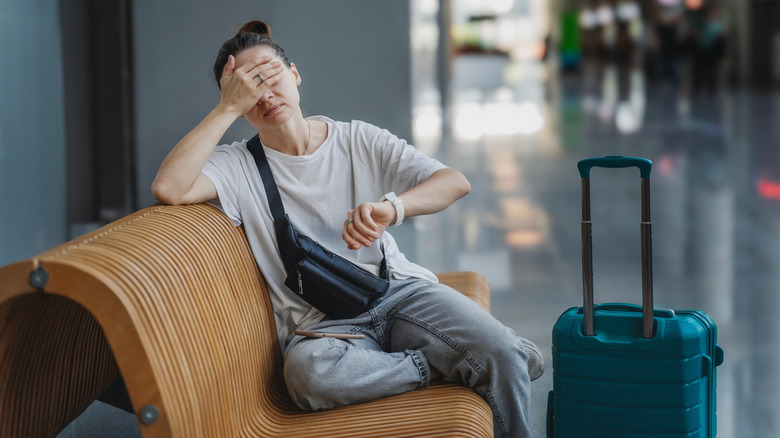Travel Delays Are At Epidemic Crisis Levels, So Flying Without This Critical Precaution Is A Dangerous Gamble
Disruptions have always been a part of travel, but never before have they affected so many people. It used to be that a small percentage of flyers would be affected by a delayed flight. Now, it's not a matter of if it happens — it's a matter of when. A survey conducted by TravelPerk reported that 89% of business travelers were affected by disruptions like delays or cancellations during a trip in 2025. Travelers should prepare for the worst to ensure that, when their schedule goes off-track, they are prepared to navigate the situation.
If you haven't already, get travel insurance and double-check your coverage for flight delays under your current policy. If it doesn't include delays or interruptions, ask if you can add it. Travel expert Rick Steves calls this "the most usable and worthwhile" type of insurance you can have, and with higher probabilities of disruptions, it's almost guaranteed that it'll be put to good use. Though coverage will vary slightly by provider, most insurances will cover delays due to weather and natural disasters, pilot or staff strikes, mechanical or tech issues, and even increased air traffic.
With trip delay insurance, travelers are usually entitled to be reimbursed for the price of meals or hotels (depending on the length of the delay), with limits ranging from $100 to $5,000 per person, though it's crucial to have all the necessary documentation to make your claim. Make sure to keep all receipts and get an official statement from your airline that your flight was delayed or canceled. Airlines may give statements without being asked, but if they don't, find a counter and ask for one at the airport. More importantly, the delay needs to be considered significant, as most companies only offer reimbursement if your travel is delayed by a minimum of six hours.
When are flight delays not covered by travel insurance?
If a flight is delayed anywhere between five minutes and three hours, it's likely that unexpected expenses, if they do occur, are not covered by travel insurance. But what if the delay still caused you to miss a connecting flight?
Missed flights caused by travelers' own negligence are seldom covered by travel insurance. This includes long customs and security lines at the airport, and layovers that are considered too short. It's recommended that layovers should be anywhere between three and five hours, depending on your destination, with one reason being giving yourself enough time to catch your connecting flight in case your first flight is delayed. In other words, short layovers are on you, not the airline. When possible, opt for longer layovers — don't worry about killing time, as there are plenty of ways to use your long layover time effectively.
Your travel insurance can help make the best of a bad situation, but by limiting your resources to just that, you can make up a few extra bucks. Travelers would be wise to also check with their airline to see what they are entitled to if a significant delay or cancellation occurs. Putting together your claim and checking in with your airline are only two of the things to do immediately if your flight is delayed.

